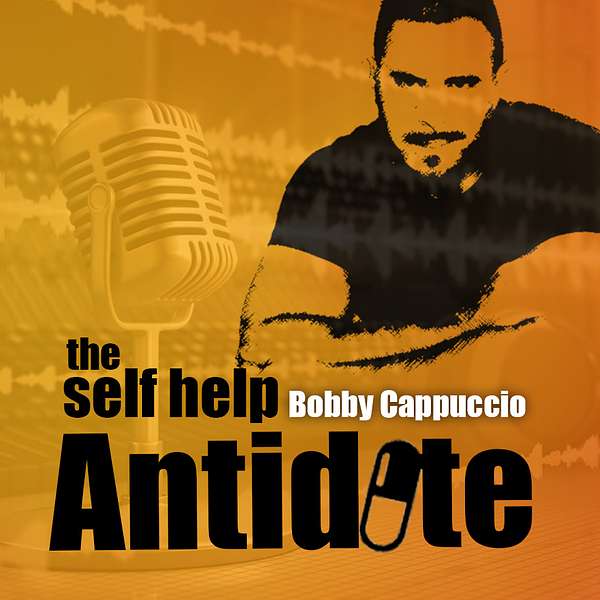
The Self Help Antidote
The Self Help Antidote
Boundaries & Burnt Toast: Reclaiming Joy in a World That Wants to Eat You Alive
In this episode of The Self Help Antidote, Tiff and I dive into a topic that’s as essential as your morning coffee—setting boundaries. But let’s be real, it’s easier said than done, especially when your brain has been hardwired by a childhood that could have doubled as a Quentin Tarantino movie. I share a bit of my own story of growing up in a highly violent environment, where my worldview was shaped by survival instincts and a desperate need to people-please. Surprisingly, it wasn’t exactly a recipe for happiness.
Ever wonder why you bend over backward to keep everyone else happy, even when it’s slowly killing your joy? Well, it turns out that the way we interpret our childhood experiences can screw with how we see other people. We’ll unpack that together and dive into the concept of post-traumatic growth—because yes, it is possible to rise from the ashes of a scorched identity, even if you feel more like burnt toast than you do the phoenix some days.
Here’s the thing: voicing your pain can actually lighten the load. It’s like finally admitting that the milk in the fridge has gone bad—it stinks, but you can finally toss it out. Painful emotions are your mind’s way of waving a red flag, signaling that some basic human needs are going unmet. The trick is learning to be self-aware and holding yourself accountable—because, let’s face it, if you’re not keeping score, the body sure is. And trust me, the body is like that ex who never forgets a thing.
We’ll explore the somatic side of our experiences—how your body reacts when your mind is freaking out—and how emotional regulation can be your secret weapon. Notice how your behavior shifts when you’re stressed? It’s not just in your head; it’s in your whole being. Besides, knowing that a thought isn’t true doesn’t make it any less real. It just means your brain is really good at its job—unfortunately, sometimes it’s like the employee of the month who takes their role way too seriously.
We’ll also tackle the impact of having to censor yourself as a kid. It’s like growing up with the mute button permanently pressed—eventually, you forget how to speak up for yourself. This leads to all sorts of misconceptions about what boundaries really mean and makes you a fortune teller of doom when it comes to predicting how others will react. But don’t worry, we’ll bust those myths wide open.
Now, let’s talk about belonging—a basic human need that’s as important as Wi-Fi. Belonging intersects with every other need, and understanding this can help you get to the root causes of your behavior. We’ll even take a shot at defining what wellbeing really means. Hint: it’s not just about green smoothies and yoga, though those don’t hurt. Unless you like me, about as flexible as a crowbar, then yoga really hurts.
And if you’re feeling like you’ve lost the joy in what you once loved, or your performance has tanked, it might be time to reassess those boundaries. You can’t pour from an empty cup, and to be of value to others, you’ve got to take care of yourself first. Oh, and we can’t forget Tiffanee—she doesn’t just sleep; she hibernates like a bear. Maybe that’s what we all need—a little more hibernation to show up as the people we want to be, instead of just surviving, we should be thriving.
So, grab a cup of something strong, and let’s get real about boundaries. It’s time to put yourself first, not because you’re selfish, but because you’re worth it.
Visit us at:
www.theselfhelpantidote.com